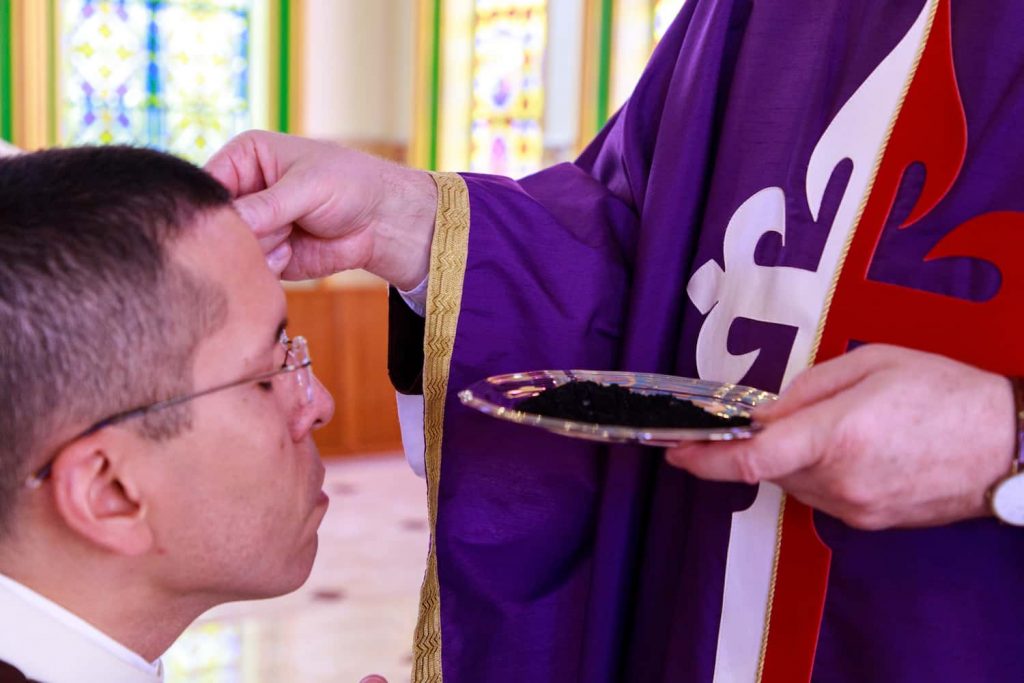Who imposes the Ashes at the beginning of Lent to the Pope, pronouncing: “Convert and believe in the Gospel” or “Remember that you are dust and to dust you will return”, is the Cardinal priest of the Parish of Santa Sabina, in Rome.
A special situation, and no less worrying, was for Cardinal Jozef Tomko who would, in due course, impose them on St. John Paul II. The two phrases, one or the other, were difficult to say, the Cardinal acknowledged in an interview with L’Osservatore Romano (February 6, 2008).
The first phrase, the prelate said, was for the Pope to say to him: “How can I remind the Pope of this? It was more difficult to pronounce the second, because John Paul II was at an advanced age and “it was like reminding him again of what he not only knew, but felt in his body”. Faced with a difficult choice, he opted for a formula that he knew was not his own, “but the words of God before which we must all bow our heads”.
This story introduces us to the path of Lent, a time of spiritual combat in which, rejecting the secularized world, we are invited to “listen to the Word of truth; to live, speak and do the truth; to avoid lies, which poison humanity and are the door to all evils” (Benedict XVI, 1-3-2006).
The ashes – blessed by the priest – originate from the burnt branches of the previous year. The minister places them on the forehead in the form of a cross. The Catholics remain thus, during the day, with the mark of the Cross of Christ on their foreheads, proclaiming their faith with pride, before the unbelieving world that surrounds them.
It brings to mind, this ceremonial of mourning and pain, our fragility, sin, the end of man and the transience of the goods of this world; it reminds us of how we must humble ourselves and do penance.
The “convert and believe in the Gospel” makes present the journey towards an authentic and profound conversion. Remember that you are dust and to dust you shall return” evokes the ephemeral nature of our nature; whether we want to or not, we will be transformed into dust. Some priests pronounce one or the other, successively, as if leaving in the hand of God himself, the words that the faithful will receive when approaching.
Profound is the simple rite, a sign of true penance, of the desire for a profound spiritual “metanoia”, of a change of mentality that transforms and renews man. Beginning on Ash Wednesday and concluding on Holy Thursday, forty days, hence the title Lent.
In this itinerary we are invited to practice more intensely three works of piety: fasting, almsgiving and prayer.
Fasting. Abstaining from food is not the only sacrifice to practice. The main thing, Benedict XVI said, will be “to abstain from evil and to live the Gospel. He does not truly fast who does not know how to nourish himself with the Word of God” (9-3-2011). It will be to renounce self-love, lack of patience, violent attitudes towards others, lies and consumerism. To flee from “the worldly mentality that induces us to concern ourselves only with what is apparent” (Francis, Lenten Message 2018).
Almsgiving should be marked by prodigality towards the needs of our neighbor, especially those who suffer. Much we are impacted by material poverty, little do we understand that there is a much more painful one: “spiritual poverty”.
Prayer. Let us have a more faithful prayer, that comes from our heart, that is not just from our lips: “not everyone who says Lord, Lord, will enter the Kingdom of Heaven, but the one who does the will of my Father” (Mt 7:21): pray, meditate, live the Word of God.
The Lenten season invites every family, every community, to put away from itself everything that takes away from spiritual things. Let them nourish themselves with family prayer, reading the Word of God, approaching the sacrament of Reconciliation, participating in the Sunday Holy Mass and, whenever possible, in the daily Holy Mass.
Conversion, not just for these forty days, not just superficial, but profound. May it produce changes of attitude, so necessary in today’s world, towards order and peace, not only in the family, but also and especially in society. May we have, therefore, a sincere and deep purpose of repentance and change of life. This is what I wish each and every one of you.
Tanslated without the author’s revision: P. Fernando Gioia, EP. padrefernandogioia@heraldos.info www.reflexionando.org

